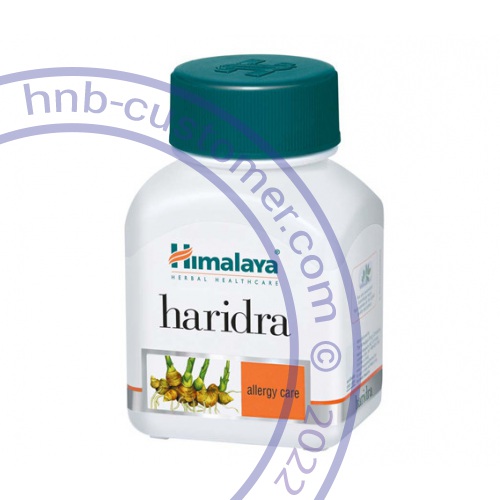Haridra
Haridra
Haridra
What is this herbal medicine?
HARIDRA (Turmeric/Curcuma longa) is a vital herb in Ayurvedic medicine, whose spice form can be recognized by its dazzling yellow color. The rhizome of the herb, used either fresh or dried, has a host of medicinal benefits. It acts as a carminative and also enhances the complexion and skin tone. Apart from that, Haridra can be used to combat liver damage, respiratory disorders and ulcers. In the past decade, Haridra's principal constituent, curcumin, has been extensively studied by Western researchers and scientists for its antioxidant activity. Researchers continue to study curcumin in relation to normal cell growth and normal brain function (‘Common Indian Spice Stirs Hope’, Wall Street Journal, 2005). In a summary of Haridra studies done between 1978-2008, researchers at the Natural Products Research Laboratories, School of Pharmacy, University of North Carolina, noted many of the herb's benefits, saying ‘recent studies on curcuminoids, particularly curcumin, have discovered not only much on the therapeutic activities, but also on mechanisms of molecular biological action’ (Chinese Medical Journal, September 2008, 17;3:11). Faculty of Arts and Sciences researchers at the Department of Chemistry, Ataturk University, Turkey, studied the antioxidant properties of the curcumin in Haridra and found it to be effectively supportive of the body's own natural peroxidation response to numerous free radicals (Chemico-Biological Interactions, July 2008, 10;174(1):27-37). Haridra is cultivated in many parts of India for its aromatic rhizome, especially in Tamil Nadu, West Bengal and Maharashtra.
Active constituents
Haridra contains a pale yellow to orange-yellow volatile oil (6%) composed of a number of monoterpenes and sesquiterpenes, including zingiberene, curcumeneandα- and β- turmerone, among others. The coloring principals (5%) are curcuminoids, 50–60% of which are a mixture of curcumin, monodesmethoxycurcumin and bisdesmethoxycurcumin. The curcuminoids contribute towards the antioxidant, anti-inflammatory and cytoprotective properties of Haridra.
Herb functions:
- Lowering cholesterol: Haridra’s cholesterol-lowering actions include preventing intestinal cholesterol absorption, increasing the conversion of cholesterol into bile acids and increasing the excretion of bile acids, due to its choleretic properties.
- Hepatoprotective: The curcuminoids present in Haridra prevent the increase in the liver enzymes SGOT and SGPT which are elevated in the case of liver disease. This validates the use of Haridra as a hepatoprotective drug in liver disorders.
- Anti-ulcer: The herb decreases gastric acid secretion, increases the mucin content of gastric juices and exerts gastroprotective effects against stress-, alcohol- and drug-induced ulcer formation.
- Anti-inflammatory: Haridra acts as an anti-inflammatory herb in both acute and chronic inflammation. Haridra prevents the release of inflammatory mediators such as TNF-a. The volatile oil, curcumin and its derivatives, are the active anti-inflammatory constituents of the herb.
- Anti-allergic: The herb is extremely helpful in soothing allergic respiratory disorders like allergic rhinitis, allergic bronchitis and skin allergies.
- Natural detoxifier: Haridra is a natural blood detoxifier and anti-microbial which helps alleviate skin diseases and enhances the complexion.
- Neuroprotective: Haridra’s excellent antioxidant activity renders it a potent neuroprotective herb, helpful in the management of diseases such as Alzheimer’s and Parkinson’s.
- Cytoprotective: Haridra exhibits significant cytoprotective activity which helps to counteract hepatotoxic and nephrotoxic conditions.
- Antioxidant: Haridra’s ability to reduce oxidative stress makes it helpful in the management of conditions such as leukoplakia, diabetes mellitus, chronic eye disease and tissue injury.
Indications:
- Allergic skin disorders
- Allergic respiratory disorders including allergic rhinitis and allergic bronchitis
Contraindications:
None
Recommended dose:
One capsule, twice a day or as directed by your physician.
Composition
Each capsule contains 400mg extract of Haridra Note: The information on this page is not intended to be a substitute for professional medical advice. Do not use this information to diagnose or treat your problem without consulting your doctor.













